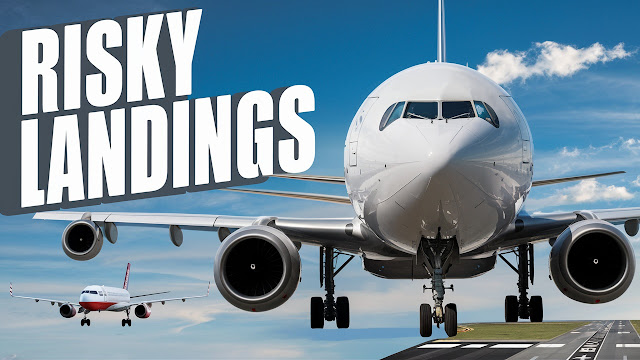Kamala Harris Fox Interview Highlights Aviation Safety Concerns: Air Disasters, Causes, and the Role of Legal and Technical Analysis
In one recent Fox interview, Vice President Kamala Harris spoke to a myriad of pressing issues, from aviation safety, taking into consideration a new uptick in air disasters and the struggles which have continuously beset aviation over the years. As flying volume increases, safety still remains a key concern for governments, regulators, and the aviation community. Every aviation accident, from technical causes to human factors, requires detailed investigation and often involves complex legal and financial consequences.
Aviation and Public Safety
Aviation tragedies are rare; however, the consequences to the industry and society often continue to be felt for years afterward. After Vice President Harris mentioned that regulations need to be enhanced during her interview with Fox, it put aviation safety regulations, meant to prevent such tragedies, back in the spotlight. Such regulations are based on the lessons learned from the investigations of these aviation accidents, along with an in-depth technical review, which explained the probable causes of those plane crashes. The most frequent causes are pilot error, poor aircraft maintenance, and failure in air traffic control.
With increased emphasis on air safety, aviation accident attorneys become quite important for ensuring that victims receive due compensation. By filing aircraft insurance claims to seeking compensation in case of a plane crash, legal experts assist in navigating a complex process subsequent to any air disaster. In incidents involving corporate jets or private jet charters, compensation usually demands expertise in aviation law and even air disaster legal advice for negotiation.
Human Factors vs. Technical Failures in Air Disasters
Accidents caused by human failure or technical malfunction have questioned the training programs of pilots and how claims of pilot error are handled. These training programs, particularly for a Commercial Pilot License, are critical in reducing human error during flight. However, rigorous training cannot totally prevent accidents, and aviation insurance services and corporate aviation liability lawyers may be required.
Air disaster investigation teams, in cases of technical failures, analyze everything from faulty jet engine repair to aircraft maintenance costs that were overlooked. Aircraft safety audits pinpoint risks and assure the uçak is compliant with the standards. In cases where technical issues are found, aviation compliance services assure airlines follow tight regulations to minimize any future incident.
Private Jet Safety and Corporate Aviation Risks
Private jet charters have become a fast-growing trend amongst business executives and high net-worth individuals. While private jet safety records remain strong, corporate jet accidents do happen. Safety standards for these aircraft include both aviation insurance policies and safety audits. These are usually aircraft brokerage firms and aviation consulting services that step in, especially in cases of incidents, to help manage the logistics and legalities, whether negotiating claims with insurance companies or offering air disaster legal advice to corporate clients.
Aircraft ownership through corporate or private jet, in which leasing of the aircraft is also a critical aspect. Leased aircraft undergo a grueling schedule of maintenance; however, the correct valuation of aircraft maintenance cost is essential in reducing the risks. Similarly, leasing can be more flexible and affordable method for businesses. However, leasing adds more layers of risks in case of mechanical failure or hiccups regarding the supply of aviation fuel.
Aviation Insurance and Legal Services in Air Disaster
The time following an air disaster is most cumbersome and exhausting for the victims and their families to understand with the help of various services, such as aviation accident lawyers, air disasters investigations, and insurance claims. Aviation insurance covers claims beginning with aircraft safety audits, pilot error claims, and air traffic control failure. Every incident results in detailed investigations wherein the legal advisors and aviation insurance services become a necessity.
Besides, victims could seek aviation liability lawyers for advice on their rights and the way forward in courts of law. This is particularly necessary in air travel accident claims where compensations are made to cover medical expenses, psychological trauma, and other forms of damage.
Training and Risk Management in Modern Aviation
Apart from regulatory oversight and legal services, aviation risk management begins with training. All the various aspects are important in ensuring that flying remains safe: training of pilots, flight simulator training, and adherence to protocols on aviation risk management. This ensures that pilots and airline crews have been trained in everything from dealing with engine failures to navigating bad weather.
Operationally, aircraft rental, aviation management classes, and helicopter charters are part of the aviation industry. Whether it is a small flight school in the region financing new training programs or a large airline making investments in commercial pilot licensing, the bottom line remains the same-to reduce the risks associated with flying, and therefore enhance safety.
The Future of Aviation: Safety and Technology
The aviation industry has continued to evolve-from improvement in the repair of jet engines to expanded uses of flight simulators. According to the interview with Kamala Harris, investment in safety will be imperative for the future of aviation. Extra funding is needed in air traffic controllers, updated air traffic control systems, and increased training programs for both commercial and private pilots in order to maintain passenger safety.
All in all, aviation safety is a matter not just of regulatory necessity but of a pledge taken by every section of the industry-be it pilots, engineers, lawyers, or insurers. Whether one operates a private jet charter service or works one's way through the legal aftermath of an aircraft accident, proper understanding of the complex issues related to aviation risk management and safety regulation can help the quest towards a safer and more efficient future in air transportation.






Comments
Post a Comment